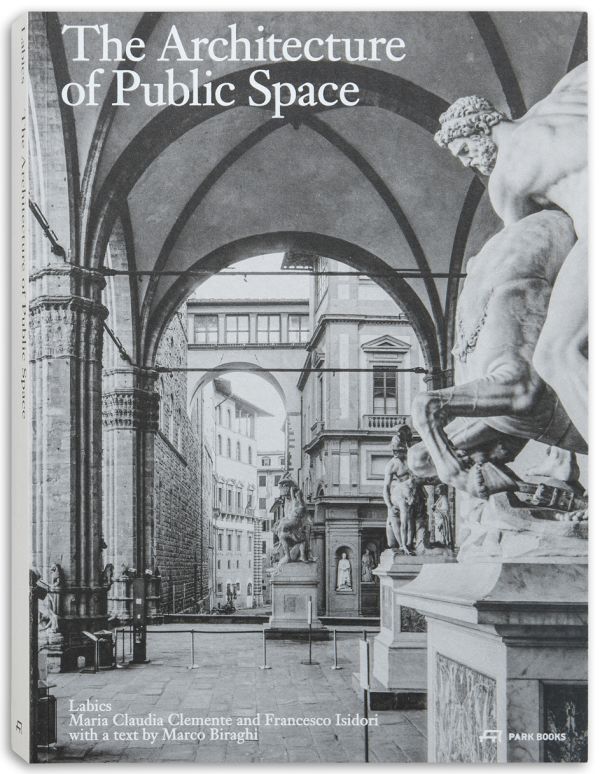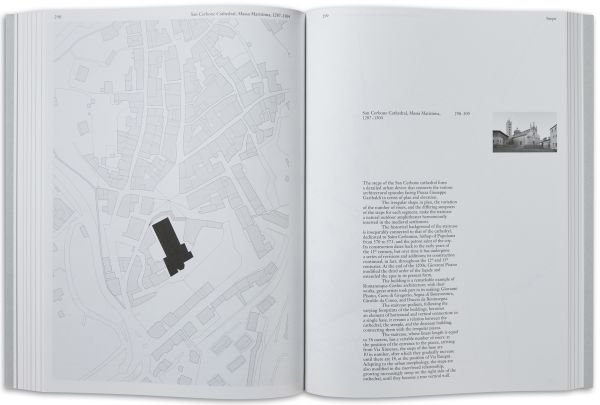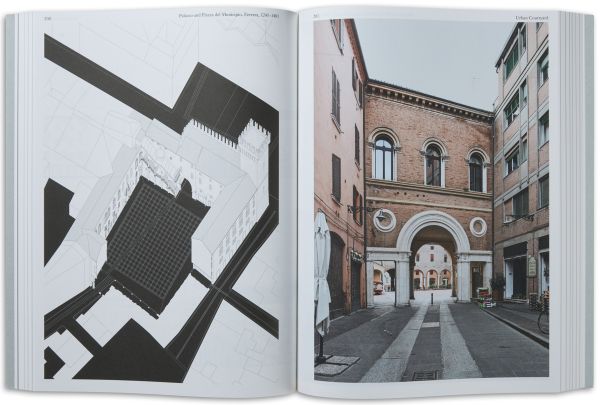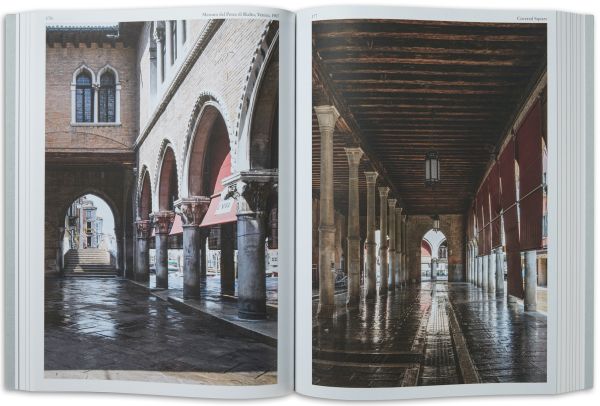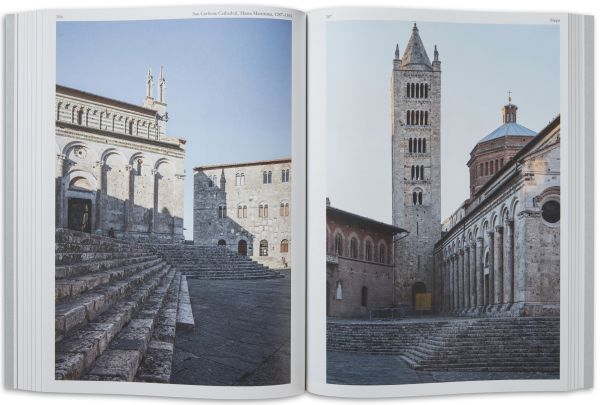The Architecture of Public Space
A captivating visual description of the famous public spaces that make Italy’s historic towns and cities so timelessly attractive
GVA Gemeinsame Verlagsauslieferung Göttingen
GmbH & Co. KG
P.O. Box 2021
37010 Göttingen
Germany
+49 551 384 200 0
info@gva-verlage.de
This new book by Labics, one of Italy’s leading architectural firms, is devoted to the country’s architecture of public space. Galleries, loggias, porticoes, steps, and courtyards, are the elements that characterize Italy’s historic towns and cities—and that make the experience of its public space so intense. Yet the volume does not feature new designs by Labics themselves: rather, Maria Claudia Clemente, Francesco Isidori, and their collaborators set out to explore historic spaces, to analyze their histories and typologies, and to document and describe them through newly taken photographs, plans, and diagrams, treating them as contemporary artifacts.
Through the illustration and categorization of thirty-two case studies, The Architecture of Public Space has the ambition to build a general theory on the design of public space; a theory that acts before and independently of language and that is based on the idea that the city is structured through the relationship between architecture and public space. With an essay written by Marco Biraghi, professor of history of contemporary architecture at the Politecnico di Milano.

